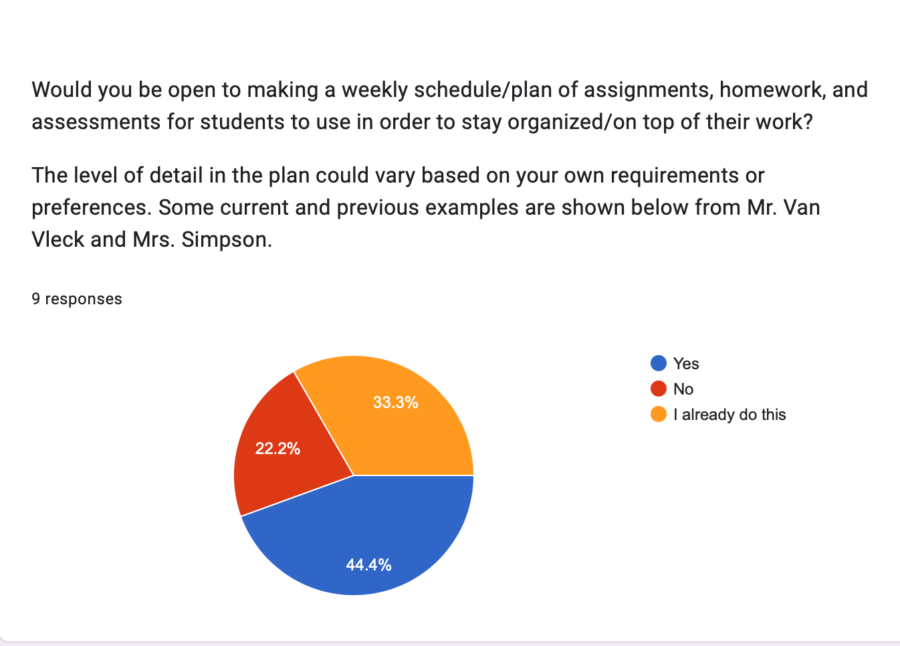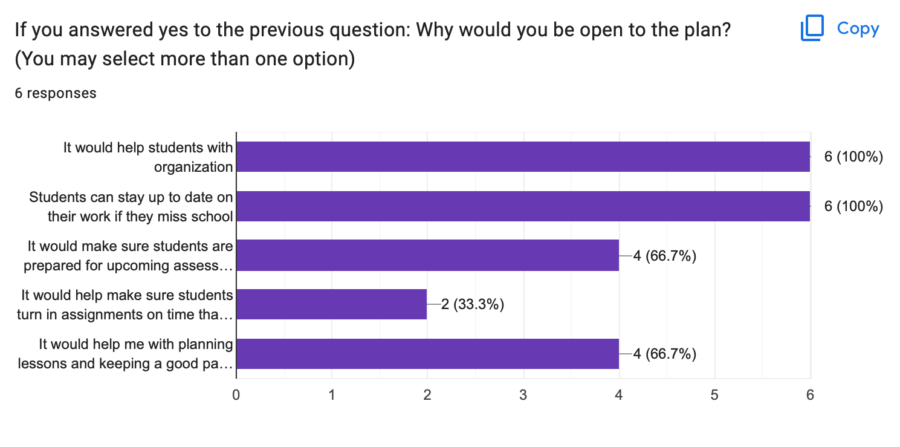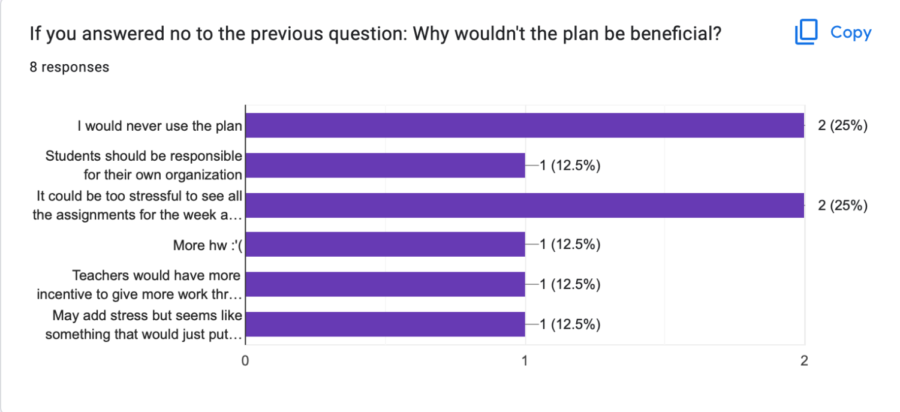How to Help Students Stay Organized
January 20, 2023
Between homework, studying, extracurricular and social activities, and not to mention trying to get enough sleep, the students of today’s world have a lot on their plates. The pressure on students to stay on top of their busy schedules has taken a toll: in a study conducted by NYU, 49% of high-school students reported feeling a great deal of stress on a daily basis, with 31% feeling somewhat stressed. An article by BNI Treatment Centers points to several causes of these anxieties, including packed schedules and poor organization skills. Seton is certainly no exception to this trend: being in such a small school, students often take up several extracurricular activities to help fill our clubs and sports. Additionally, students must attend to their academics, which may include difficult advanced placement classes. How could we help students at Seton with the issues they face in order to reduce stress?
A solution would be to ask teachers to make a weekly plan of action for the week for students. These plans could include a schedule of what lessons will be covered in class, homework, assignments, and assessments. The level of detail in the plans could vary based upon each teacher’s preferences, requirements, and available time they have to make these plans: the concept is to be able to put something out to students (no matter how simple or complex) so that they are able to see what their week will look like and plan accordingly. Doing this may encourage students to structure their workload in an organized fashion, helping reduce stress.
A survey conducted by the Voice of the Saints asked both our students grades nine through twelve and teachers their thoughts on this idea. Out of nine teachers who responded, four said they would be open to making weekly plans, three reported that they already make plans like these, and two were not open to the idea. Out of fifty-three students who responded, an overwhelming majority of eighty-eight percent said they believed that making such plans would be beneficial to both students and teachers.
The students and teachers who were in favor of the weekly plans believed that they would help students stay organized, ensure they are ready for upcoming assessments, allow them to catch up on work if they miss school, and help teachers with planning lessons and keeping pace in class. Such benefits would bring more structure to students’ academic profiles, which could help improve grades as well as alleviate stress.
Those who were not open to the idea of weekly plans expressed that they doubted students would use the plan, students should be responsible for their own organization, changes in the plan might lead to confusion, it may cause even more stress for students to see all of their assignments at once, and making the plans might give teachers incentive to give more work.
However, as the survey shows, a majority of students expressed that they would utilize a weekly plan. Even if the responsibility of staying organized lies on the student themselves, teachers also have a responsibility to be organized for the sake of their students’ understanding of the material, as well as to be respectful of the student’s time outside of the classroom when assigning homework and announcing tests.
Of course, there is always a chance that plans may change, and need to be adjusted. Nonetheless, making agendas includes accounting for possible disruptions, which can be easily resolved if there is already a plan in place. Students being able to see all their assignments at once might prove stressful, but may encourage students to take the time to organize what they have to do, and make a day-by-day plan of action to avoid being overwhelmed. Making a weekly plan for class might motivate teachers to give more assignments, but could also decrease the assignments they give if they collaborate with other teachers to see what kind of workload they are giving students.
The effect that academic responsibilities have taken on students has proven to be immense. By creating weekly agendas, teachers can help students manage their busy schedules with organization. We continue to see the many effects of academic stress on students, so helping to alleviate this stress by making weekly plans of action will help build a better dynamic between students and teachers. Reducing stress, helping students stay organized, and possibly improving grades- could it hurt to give it a try?



![College of Community and Public Affairs graduates cheering during the CCPA Commencement Ceremony. [Via Daily Photos at binghamton.edu]](https://sccvoice.org/wp-content/uploads/2023/05/Screenshot-2023-05-16-10.50.55-PM.png)










































